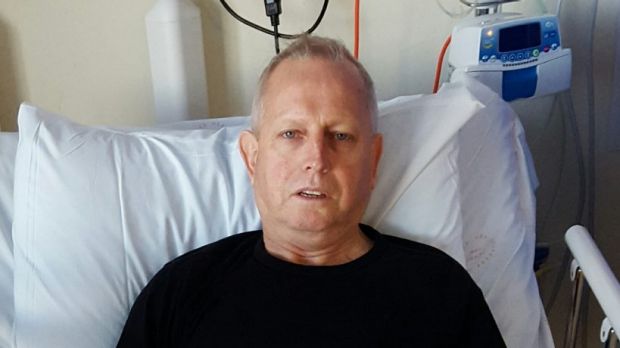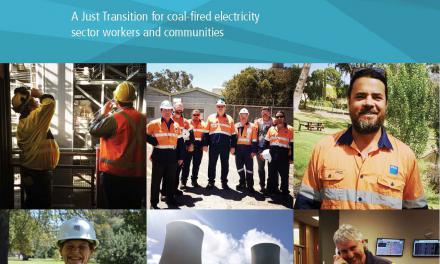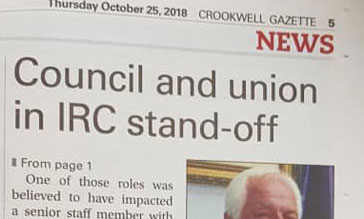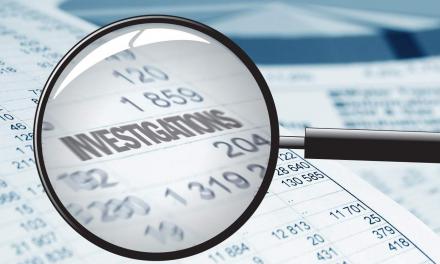It’s easy to take good health and an able body for granted, which is perhaps why our city, transport systems and homes are so poorly designed to meet the needs of those less fortunate.
Something as simple as an accident, injury, or simply ageing, can leave people unable to travel, work or engage in their community. That isn’t just bad news for those individuals left to deal with the physical, emotional, mental and financial stress of serious injury or disability, it’s also socially irresponsible, robbing our communities and workplaces of valuable participants.
Going through life as an able-bodied man I was as guilty as anyone of this failure. Then, last month, I fell while working around the yard. My right leg and ankle were shattered in three places. Surgeons inserted pins and screws to hold it all together. Suddenly I was living life on the other side of the fence. Unable to walk, shower alone, dress myself, cook, drive or travel to work, I saw first-hand the challenges, difficulties and discrimination that so many Australians have to deal with daily.
While I’d never seek to speak for those who live each day with a disability – our nation is blessed with many wonderful advocates – I have had my eyes opened by my own experiences.
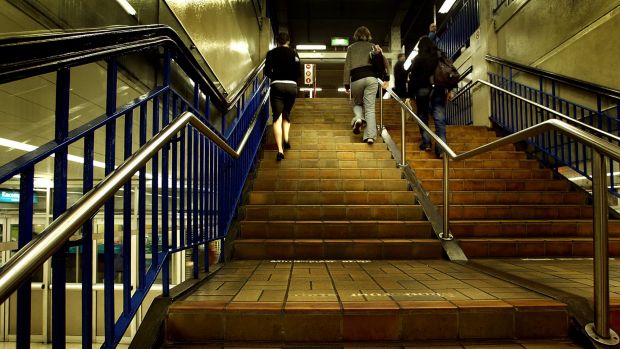
Many train stations lack lifts making it difficult for people with disabilities or injuries to access public transport. Photo: Kate Geraghty
Like most, my house was not equipped to accommodate my incapacity. Stairs restrict my ability to move around while the combined bathtub shower is impossible to get in and out of.
Living on the outskirts of the city, public transport options are limited. What is available poses challenges. Many stations lack lifts, so I can’t use them. Those that are accessible aren’t always staffed, making it hard to get assistance when needed.
After running the transport gauntlet, the next challenge is the diabolical state of many public spaces and thoroughfares. Uneven walkways, potholes, awkward steps, obstacles – both static and of the inconsiderate human form – vastly restrict movement. Just getting to an appointment with my doctor is an ordeal.
It is also socially isolating, leaving me to rely on my computer and phone to try to communicate with the outside world. If I lacked the financial resources or technological literacy for those things I would be completely cut off.
Thankfully, I’ve had the help of my wife and family, friends and very supportive workmates. But not everyone has access to a strong personal support network. The hospital, my specialist and my local GP have been great when it comes to the treatment of my physical injury, but none seem to comprehend the broader challenges.
For instance, while I rented a special chair to use in the shower, no thought was given to the fact that my shower is impossible for me to use alone.
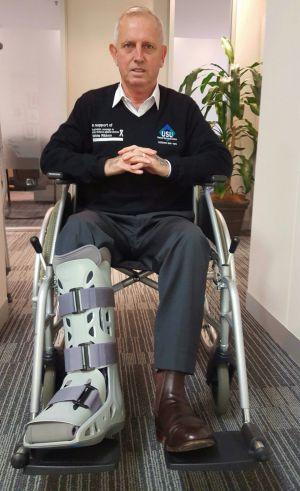
Graeme Kelly’s right leg and ankle were shattered in three places after he fell in his backyard. Photo: Supplied
Thankfully, I had ample sick leave saved up and an understanding employer, but what about those people who are casuals or self-employed? Or those who have only recently started a job or do manual work? The financial pressures quickly build up, with a physical injury capable of pushing people into hardship and poverty.
The psychological challenges are also substantial. Stuck at home, socially and professionally isolated, it is very easy to have your mental state deteriorate. For those left permanently unable to work, this can be devastating.
All these experiences made me realise the need to turn things on their head.
In the built environment, rather than have accessibility remain as an afterthought, it should be the starting point. New homes, workplaces, transport links and public spaces must be designed so they are safe and useable for everyone.
Our workplaces must provide proper support for all those with injury and disability, ensuring genuine pathways to return to meaningful work.
And governments and communities must deliver practical support to all those who need it, in particular those without family or strong social networks to fall back on.
I’m lucky that my injury only poses temporary challenges, but for so many people some common-sense changes could make a lifetime of difference.
Graeme Kelly is the general secretary of the United Services Union, which represents over 30,000 workers in the local government, energy, airline and administration sectors.
This article was first published in the Sydney Morning Herald.

